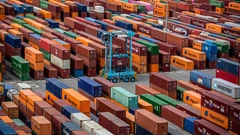World Bank Sets Africa Terms to Win $40 Billion in Power Finance
(Bloomberg) -- The World Bank and African Development Bank laid out the terms African nations will need to meet to win $40 billion in finance to tackle the continent’s electricity crisis.
The two multilateral lenders are backing a program called Mission 300 that aims to bring electricity to 300 million Africans by 2030 with a pledge of $30 billion in finance, on top of which they expect $10 billion from private institutions.
To get the support of the institutions, countries will need to undertake a number of steps including putting in place regulation that makes it attractive for private investment and committing to using the lowest cost electricity, which is generally renewable power. Thirteen countries will present their plans at a head of state Mission 300 energy summit in Tanzania at the end of this month.
“Of the 680 million people globally without electricity access 570 million live in sub-Saharan Africa,” Franz Drees-Gross, director of infrastructure in Western and central Africa for the World Bank, told journalists on Thursday. “Against that backdrop, and also very high population growth in Africa, that’s making it very difficult to make progress in increasing coverage.”
The two banks expect to see the program win support from private sector developers, financial institutions, sovereign wealth funds and philanthropies by making investing in renewable energy across the sub-Saharan region more profitable.
Participating countries are also expected to commit to running competitive tenders for power generation projects built by private companies and to make sure their utilities charge high enough prices to cover their operating costs. They are also expected to lay out a plan to deliver universal access to power in their countries.
“If you’re going to reform African energy sectors, you have to make deep and sometimes politically difficult” reforms, he said.
The aim is to connect half of the 300 million people through power projects linked to national grids and the rest through off-grid technologies such as solar mini-grids.
The AfDB, which is committing $5 billion to the project, will, along with other institutions, set up guarantees and other financial mechanisms to lessen risks for private investors, said Wale Shonibare, director of energy and financial solutions at the lender.
Nigeria, the Democratic Republic of Congo, Chad and Ivory Coast are among the countries that will lay out their plans at the conference. Across sub-Saharan Africa access to electricity in 2019 ranged from 1% of the population in South Sudan to 94% in South Africa, according to the International Energy Agency.
Sign up here
©2025 Bloomberg L.P.
KEEPING THE ENERGY INDUSTRY CONNECTED
Subscribe to our newsletter and get the best of Energy Connects directly to your inbox each week.
By subscribing, you agree to the processing of your personal data by dmg events as described in the Privacy Policy.
More renewables news

GB Energy Faces New Doubts as UK Declines to Affirm Future Funds
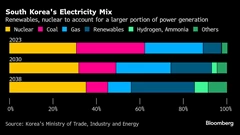
Korea Cancels Planned Reactor After Impeaching Pro-Nuke Leader
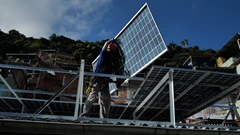
Brazil’s Net-Zero Transition Will Cost $6 Trillion by 2050, BNEF Says
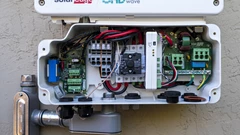
SolarEdge Climbs 40% as Revenue Beat Prompts Short Covering
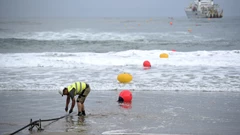
EU to Set Aside Funds to Protect Undersea Cables from Sabotage
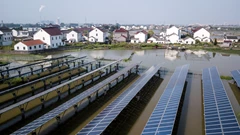
China Revamps Power Market Rules In Challenge to Renewables Boom
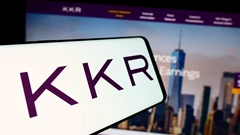
KKR increases stake in Enilive with additional €587.5 million investment
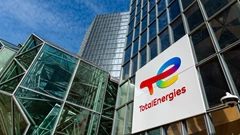
TotalEnergies and Air Liquide partner to develop green hydrogen projects in the Netherlands
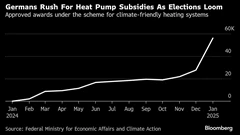
Germany Set to Scale Down Climate Ambitions
